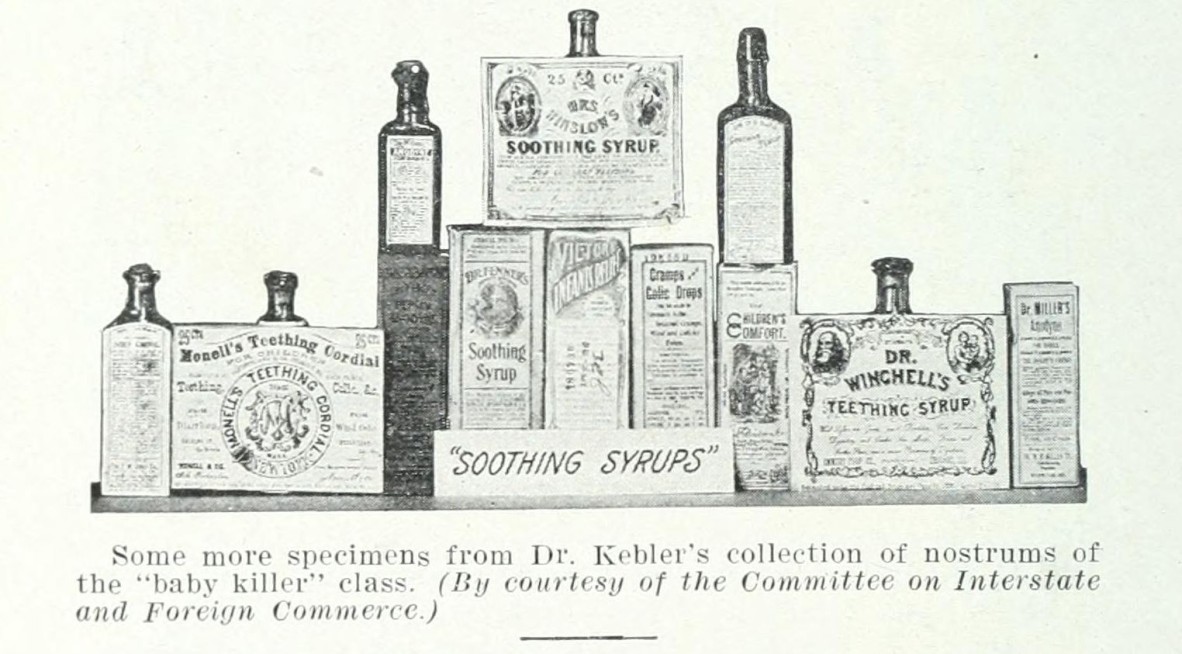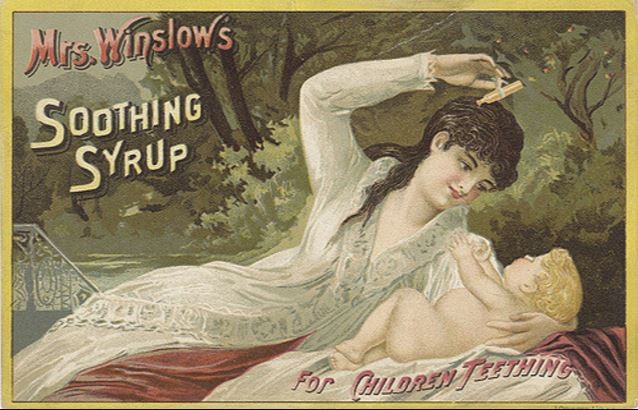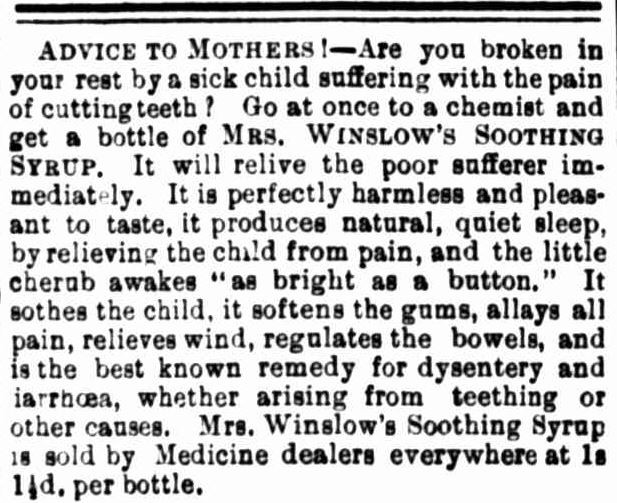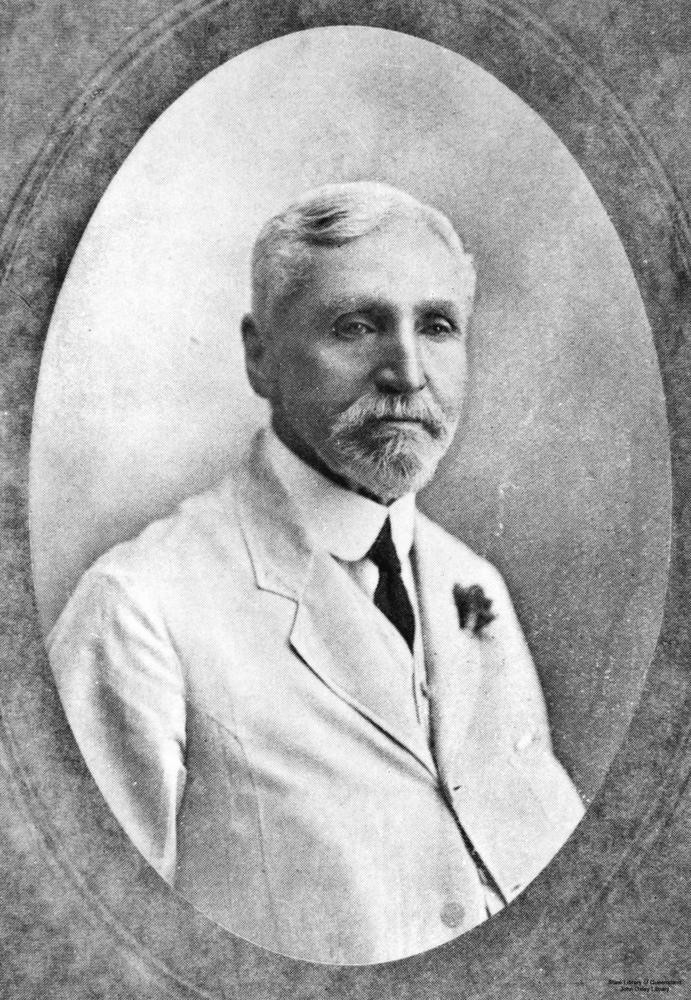The Baby Killer - Mrs Winslow's Soothing Syrup (Patent medicine in Queensland)
By JOL Admin | 3 May 2016
Browse through Queensland newspapers from the mid-1880s until the early part of the 20th century, you will discover they are filled with advertisements for elixirs, tonics, ointments and powders curing everything from rheumatism to baldness to cancer.

From "Nostrums and quackery; articles on the nostrum evil and quackery reprinted, with additions and modifications, from The Journal of the American Medical Association", 1914 (Internet Archive)
Many of these so-called "cures" were either ineffective and/or contained dangerous chemicals. In the era of patent medicines, manufacturers weren't required to list their ingredients. Their main concern was with enticing advertisements and packaging.

Trade card from the collection of Miami University Libraries
One notorious patent medicine was Mrs Winslow's Soothing Syrup, which started production in America in 1849 before reaching a global market. With their beautifully illustrated advertisements, Mrs Winslow's Soothing Syrup was marketed to mothers with babies or young children, who the product promised to relieve from the pain of teething. Unbeknownst to the consumer was that this product was potentially deadly, as it contained morphine.
In Queensland, advertisements for Mrs Winslow's Soothing Syrup can be found in newspapers from the mid 1860's until the 1920's.

Advertisement from Maryborough Chronicle, August 15, 1885
Another advertisement published in the Maryborough Chronicle in 1915 gives the dosages -
"For a child under one month old, 6 to 10 drops; three months old - half a teaspoonful and six months old and upwards - a teaspoonful three or four times daily".
Accidental deaths were not uncommon. In December 1896, the Darling Downs Gazette published an article entitled 'Dead through Winslow's Soothing Syrup', which reported details from the inquest of an infant named Harry Fietell, whose mother regularly gave the child doses of the syrup to induce sleep. Upon examining the body a doctor determined the child had succumbed to narcotic poisoning, which was later confirmed during a post-mortem.
In September 1891, surgeon and politician, William Frederick Taylor, in a speech before the Queensland Legislative Council railed against the dangers of patent medicines.

Portrait of Doctor William Frederick Taylor. John Oxley Library, State Library of Queensland. Neg 135461
'We have a very high infant mortality in this country, and no doubt a great deal of that is owing to these medicines. Medical men are constantly being called in, and finding infants in a state of syncope, coma, pupils contracted, and evidently cases of opium poisoning. After a great deal of difficulty, the mother or nurse may be induced to admit that the child has had a dose of some infants' preservative - possibly Mrs Winslow's Soothing Syrup, which is largely used, or Steedman's powders, which contain morphia. Hon. gentlemen will see that if we are to save the lives of these little creatures we must place some restriction upon the sale of these medicines which contain opium or poisons of that sort"
In 1911, the American Medical Association published Nostrums And Quackery and categorised Mrs Winslow's Soothing Syrup under “Baby Killers”.
To discover more about Queensland during the First World War join us at the Q Anzac 100 2016 symposium, On the home front, Tuesday 10 May and Wednesday 11 May 2016. For more information go to State Library’s website.
Myles Sinnamon - Project Coordinator, State Library of Queensland
Comments
Your email address will not be published.
We welcome relevant, respectful comments.